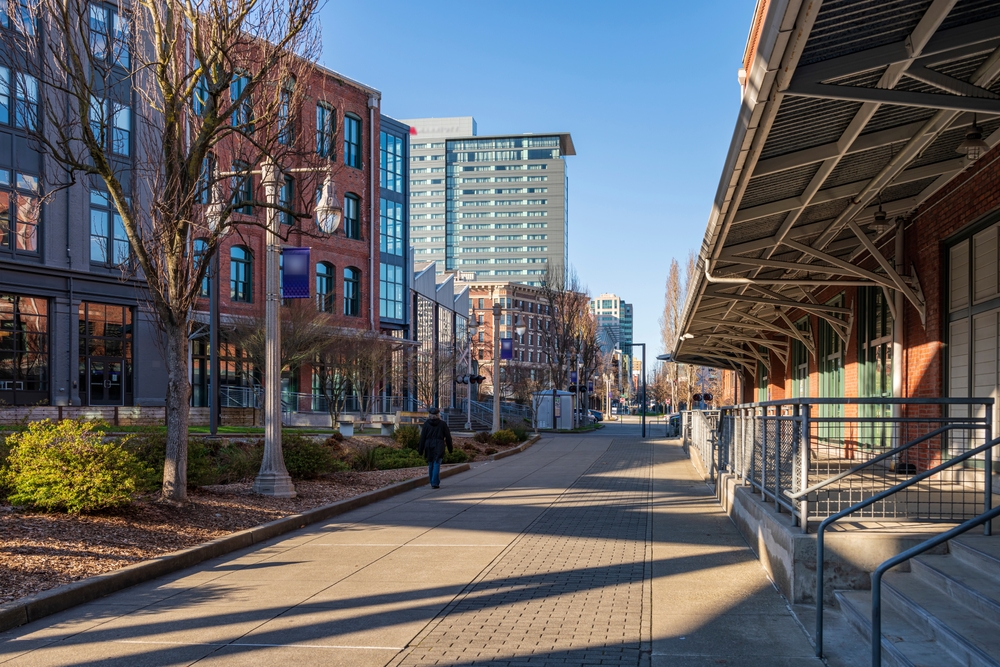Washington State, renowned for its diverse economy and vibrant cities, offers a range of investment opportunities. Among these are the Opportunity Zones, a program designed to stimulate economic development and job creation by providing tax benefits to investors. This initiative, part of the Tax Cuts and Jobs Act of 2017, targets economically distressed areas with the aim of encouraging long-term investments. If you’re an investor or entrepreneur looking to explore potential in Washington’s Opportunity Zones, this blog will guide you through the benefits, opportunities, and strategies for making the most of this unique program.
Understanding Opportunity Zones
Opportunity Zones were created to spur economic growth and development in low-income communities. By investing in these designated areas, investors can benefit from various tax incentives. The key components of the Opportunity Zone program include:
Tax Deferral: Investors can defer taxes on any capital gains reinvested into Qualified Opportunity Funds (QOFs) until the end of 2026 or when the investment is sold or exchanged, whichever comes first.
Tax Reduction: If the investment is held for at least five years, investors can receive a 10% reduction in the deferred capital gains tax. If held for seven years, this reduction increases to 15%.
Tax Exemption: Perhaps the most appealing benefit is that if the investment is held for at least ten years, any additional gains from the Opportunity Zone investment are tax-free.
Washington’s Opportunity Zones: A Diverse Landscape

Washington State boasts several Opportunity Zones across both urban and rural areas, each offering unique opportunities. Here’s a closer look at some of the areas and what they have to offer:
Seattle: As a major metropolitan area, Seattle has several Opportunity Zones that benefit from the city’s thriving tech and business sectors. Investments in these zones can leverage Seattle’s strong economic fundamentals, including its vibrant tech industry and cultural amenities.
Tacoma: Known for its revitalization efforts, Tacoma’s Opportunity Zones are ripe for development, particularly in areas experiencing a resurgence of interest from both businesses and residents. The city’s strategic location near Seattle and its ongoing infrastructure improvements make it an attractive option for investors.
Spokane: In Eastern Washington, Spokane offers Opportunity Zones with potential in healthcare, education, and real estate. The city’s growing economy and relatively lower cost of living compared to Western Washington present attractive prospects for investors looking to capitalize on emerging opportunities.
Rural Areas: Washington also features Opportunity Zones in its rural regions, where investments can drive significant economic impact. These areas may present unique opportunities in agriculture, tourism, and natural resource management.
Types of Investments in Opportunity Zones
Investors have various options when it comes to deploying capital into Opportunity Zones. Here are some common investment types:
Real Estate Development: Investing in real estate projects such as residential, commercial, or mixed-use developments can benefit from the tax incentives provided by the Opportunity Zone program. This includes both new construction and the redevelopment of existing properties.
Business Investments: Direct investments in businesses operating within Opportunity Zones can also qualify for tax benefits. This might include startups, expanding businesses, or companies looking to relocate operations to these areas.
Infrastructure Projects: Investments in infrastructure projects, such as transportation, utilities, or public facilities, can provide long-term economic benefits and qualify for Opportunity Zone incentives.
Strategies for Success

Investing in Opportunity Zones requires careful planning and strategy. Here are some tips to help you make the most of these opportunities:
Research and Due Diligence: Conduct thorough research on the specific Opportunity Zones you’re interested in. Assess the economic conditions, demographic trends, and potential for growth. Partnering with local experts can provide valuable insights into the area's potential.
Leverage Local Partnerships: Collaborating with local developers, business owners, and community leaders can enhance your investment strategy. Local knowledge and networks can help identify the most promising opportunities and navigate any challenges.
Understand the Compliance Requirements: To qualify for Opportunity Zone tax benefits, investments must be made through Qualified Opportunity Funds. Ensure that you understand the compliance requirements and work with a tax advisor to manage your investment effectively.
Focus on Long-Term Goals: The Opportunity Zone program is designed to encourage long-term investment. Develop a strategy that aligns with this goal, focusing on projects with sustainable growth potential rather than short-term gains.
Evaluate Impact: Consider the social and economic impact of your investments. Investing in Opportunity Zones not only offers financial benefits but also contributes to community development and revitalization.
Washington’s Opportunity Zones offer a wealth of investment potential across the state’s diverse landscapes. From the bustling urban centers of Seattle and Tacoma to the growing economy of Spokane and the untapped potential of rural areas, there are numerous opportunities for investors to explore. The tax incentives provided by the Opportunity Zone program make it an attractive option for those looking to achieve both financial returns and positive community impact. By carefully researching and strategically investing in these zones, you can take advantage of the benefits while contributing to the economic revitalization of underserved areas. Remember, successful investments require a long-term perspective, local insights, and a clear understanding of compliance requirements.
Are you ready to explore the investment opportunities in Washington’s Opportunity Zones? Begin by researching the zones that align with your investment goals and connect with local experts to gain valuable insights. For personalized advice and to stay updated on the latest opportunities, subscribe to our newsletter and follow our blog. If you have any questions or need assistance with navigating the Opportunity Zone program, don’t hesitate to reach out to our team. Let’s work together to make the most of Washington’s growing economic landscape!

